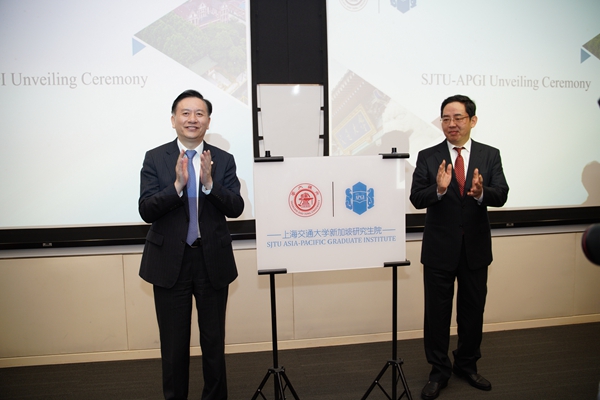University opens graduate institute in Singapore


Shanghai Jiao Tong University has unveiled its Asia-Pacific Graduate Institute in Singapore, which represents the university's efforts to expand the reach of its education and research endeavors.
According to Dong Ming, vice-dean of the institute, the facility is aimed at promoting scientific innovation and exploring new prospects around the world.
"We hope to nurture international talent that can make contributions to the development of China and influence the world," said Dong at the opening ceremony of the institute in Singapore on Nov 28.
The institute was registered as a private education institution by Singapore's Ministry of Education in October.
The MBA program in the institute will gather teachers with knowledge of the economic development in both China and Singapore to educate students through business practice case studies. Opportunities for talent exchange and enterprise visits to China will also be provided.
Regarding scientific research, the institute aims to address the common challenges faced by humankind in the future, such as those related to energy, environment and the application of artificial intelligence.
The collaboration between SJTU and Singapore started in 1992 when Singapore's Ministry of Education approved the launch of an MBA program by the university.
In 2001, following the signing of an agreement to bridge economic, trade and cultural collaboration between Singapore and China, SJTU's MBA program in Singapore was hosted at Nanyang Technological University.
The university has also joined CREATE, a large-scale scientific research project initiated by the National Research Foundation of Singapore, says Dong.
The project aims to pool international wisdom to solve major global scientific and technological problems through multidisciplinary research.
In addition, since 2012, SJTU has been collaborating with the National University of Singapore in the Energy and Environmental Sustainability Solutions for Megacities (E2S2) program, exploring solutions to problems related to the development of cities.
"China-Singapore relations have maintained a good momentum of development, and I hope the institute will deepen the opening-up of China's education to the world, and contribute to Singapore's development as well as the future of all mankind," says Hong Xiaoyong, the Chinese ambassador in Singapore.
- US mom adopts 2 Chinese kids, makes living by teaching English online
- China, Philippines to jointly train Filipino Chinese-language teachers
- Works by artist Du Meng in solo exhibition in New York
- 'Superstars' of modern Chinese ink art shine in Nanjing
- Exhibition of Shanghai university museums held in Singapore




































